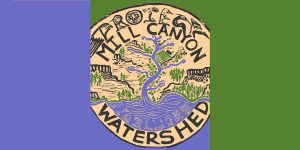 Support the
Support the
Washington Sewage Sludge Moratorium!
On Sept. 6, 2017, we announced our call for an immediate moratorium on approving any more sewage sludge permits to dispose of sewage sludge on agricultural land until the regulations catch up to the science.
Press conference was recorded.
Go HERE to send your message to Governor Inslee
and Ecology Director Bellon: Impose a moratorium now!
We have compiled a new document that goes into greater detail laying out our objections to the disposal of sewage sludge on agricultural lands. Go HERE to study our detailed objections.
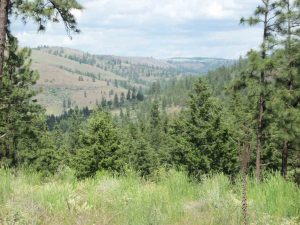
The application of treated sewage sludge (euphemistically labeled “biosolids”) to crop land is sadly gaining popularity as a cheap, but disgusting way to dispose of toxic waste. Currently, the well-being of the residents of Mill Canyon (near Davenport in Lincoln County, WA) is threatened by a proposed application of sewage sludge by a neighboring wheat farmer.
Concern about spreading “bio-solids” in Mill Canyon is a local example of a national problem. The progressive journal In These Times has recognized the threat and has begun to publish a series of in-depth exposés of the hazards of municipal sewage sludge use on agricultural land.
In These Times reports that municipal sewage sludge contains
“…whatever goes into the sewer system and emerges as solids from municipal wastewater treatment plants. Sludge can be (its exact composition varies and is not knowable) any of the 80,000 synthetic chemicals used by industry; new chemicals created from combining two or more of those 80,000; bacteria and viruses; hospital waste; runoff from roads; pharmaceuticals and over-the-counter drugs; detergents and chemicals that are put down drains in residences; and, of course, urine and feces flushed down toilets.
“Sludge that is heat dried, anaerobically digested, composted, limed or otherwise stabilized is called “biosolids”—a made-up euphemism for sewage sludge that makes it no safer. In addition to toxic metals, pathogenic viruses and bacteria, some hazardous materials in “biosolids” include: endocrine disruptors like brominated flame retardants (PBDEs, which are a lot like PCBs), phthalates like DEHP (a reproductive and developmental toxin), persistent and toxic ingredients in personal care products (e.g., triclosan and galaxolide) and pharmaceuticals that the human body excretes in feces or urine (hormones from birth control pills, etc.).
“The Targeted National Sewage Sludge Survey, a 2009 EPA study, concluded that all sewage sludge contains toxic and hazardous materials”
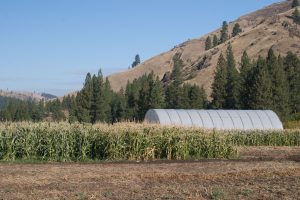
Located about 35 miles west of Spokane, Mill Canyon is home to quite a few residents with both commercial and amateur organic farms and gardens, some of which have been tended organically for over 50 years. Tolstoy Farm, one of the oldest secular intentional communities in the US, is located in Mill Canyon. Tolstoy Farms, one of the oldest and most well known organic farms in the region that supplies produce to hundreds of customers is in Mill Canyon. The farm operates a market garden that has been certified organic for nearly 20 years. Tolstoy Farms helped create the Spokane Farmer’s Market and was at the forefront of introducing fresh, local, organic produce to Spokane. Farmers from Tolstoy travel twice weekly during the growing season to sell their produce at the market and they supply nearly 100 families with a weekly CSA share of the harvest through their Community Supported Agriculture (CSA) program. While the water source for Tolstoy Farms is not within or downstream of the areas currently proposed for biosolids, Tolstoy Farms opposes the application of biosolids as well as the spraying of agricultural chemicals on the wheat fields in the area. Tolstoy Farms is very much opposed to biosolids use becoming an accepted practice in agriculture.
Go HERE to view a map showing the tributaries that feed Mill Creek, and ultimately the Spokane River, that are threatened with sewage sludge application.
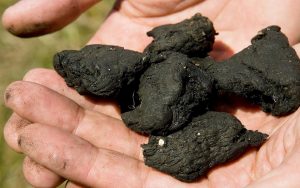

The Rosman Farms fields are not an appropriate place where sewage sludge should be applied. In 2016, a group of Mill Canyon residents attempted to negotiate an agreement with the owner of Rosman Farms which would have removed certain unsuitable lands from biosolids use and establish buffers to protect neighboring properties. Eventually Rosman Farms broke off discussions and renewed efforts to have Fire Mountain Farms apply sewage sludge to their fields.
Both Fire Mountain Farms and Rosman Farms have negative track records with respect to compliance with biosolids law. FMF has been the subject of several disciplinary orders, issued by the Department of Ecology, for mixing dangerous waste with biosolids, and was recently denied permission for some of its application sites in western Washington. B&B Septic, a septic tank pumping service located in Harrington, WA, has been applying septage to Rosman Farms for several years, and it is believed they have over-applied that product to fields that drain to an area of Mill Canyon known as Angel Springs. This poor compliance record indicates a need, at minimum, to impose stringent monitoring conditions on any approval of FMF biosolids use, if not outright denial of the request for a permit.
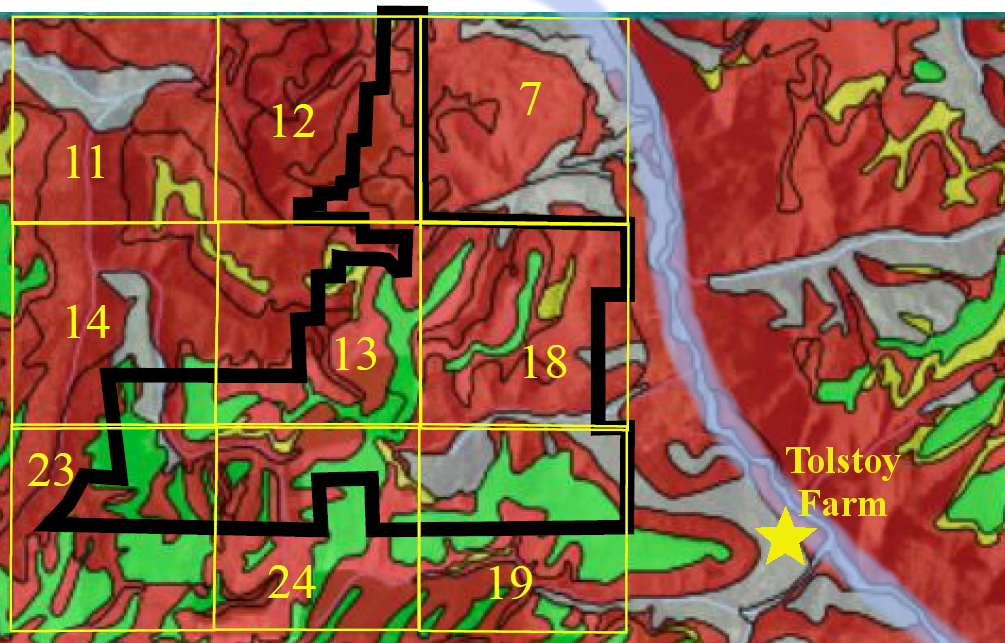
In 2016, the Department of Ecology held hearings and provided for public comment on a permit application by Fire Mountain Farms which included seeking permission to apply sewage sludge on Rosman Farms in the Mill Canyon watershed. Several Mill Canyon residents submitted detailed comments that were highly critical of the proposal and asked Ecology to deny the permit. The comment period closed on October 31, 2016, but the Department has not yet made a final ruling. Despite strong arguments put forward that would support denial of the permit, the Washington State Legislature, which for some reason “recognizes biosolids as a valuable commodity,” has mandated that the Department of Ecology “implement a program that maximizes beneficial use” of biosolids. Therefore it is expected that Ecology will eventually grant the permit (quotes from the Dept. of Ecology website).
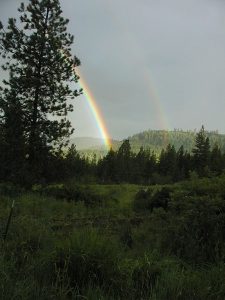 In light of this, our new organization, Protect Mill Canyon Watershed (PMCW), is preparing to appeal a decision that would grant permission for sewage sludge to be applied to fields in our watershed. Filing such an appeal would be an expensive undertaking and should that eventuality come into being, PMCW will seek financial support from concerned citizens like you.
In light of this, our new organization, Protect Mill Canyon Watershed (PMCW), is preparing to appeal a decision that would grant permission for sewage sludge to be applied to fields in our watershed. Filing such an appeal would be an expensive undertaking and should that eventuality come into being, PMCW will seek financial support from concerned citizens like you.
If this permit is denied outright, or our appeal, if one is needed, is successful, it will set an important precedent for protecting the health and livelihoods of Washington communities facing similar threat as well as the health and well-being of food shoppers who choose to purchase nutritious and tasty locally-grown produce that they would not want to be contaminated by municipal sewage sludge.
Protecting the Mill Canyon watershed will require help and support from many people. Please sign our guestbook so that we have your contact information when and if it becomes necessary to engage the larger community in this struggle.
